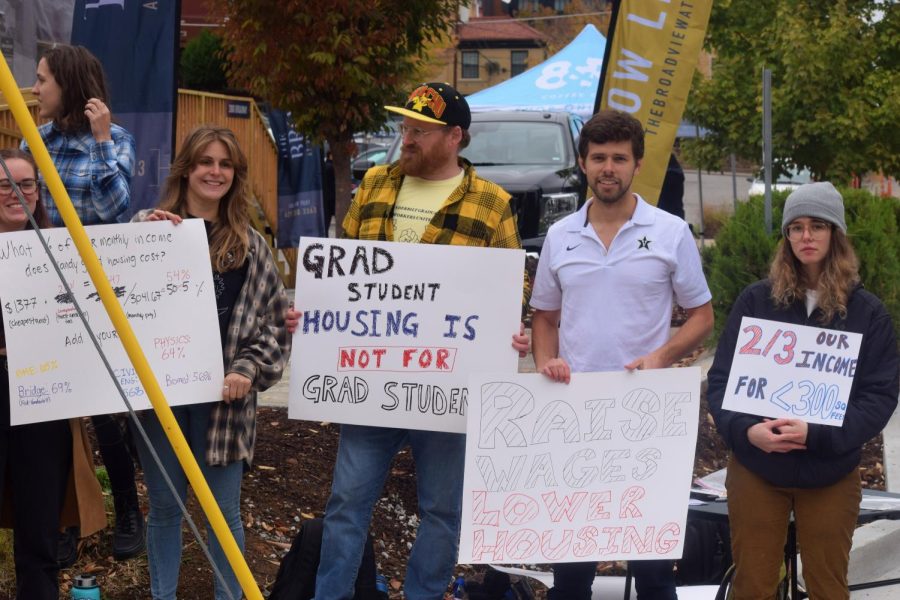In a June 28 press release, the university announced the launch of the Nashville Catalyst Fund, a public-private partnership to develop more affordable housing across the city. This is the latest in a series of expansions to the university’s collaboration with the Nashville mayor’s office.
Vanderbilt contributed $5 million to the $75 million overall fund, which will support the creation of 3,000 affordable housing units by 2034, according to Nashville mayor Freddie O’Connell. Metro Housing Division and First Horizon Bank contributed the remaining portions of the fund, which will be overseen by Forsyth Street Asset Management.
Graduate students at Vanderbilt have rallied over the past few semesters for more affordable housing, noting that rising rent and inflation are outpacing graduate stipends. The university’s last attempt at affordable housing for graduate students, The Broadview at Vanderbilt, earned criticism over its alleged failure to deliver this affordability.
Chancellor Daniel Diermeier acknowledged this concern in the press release and has engaged the university in other public-private partnerships to attract talent and investment to Nashville. Among these is the recently launched Nashville Innovation Alliance, whose projects are likely to include an urban lab “expected” to offer roles for students, according to a university representative.
The Catalyst Fund initiative is seeking additional funding to meet guidelines set by Nashville’s Affordable Housing Task Force. After convening in 2021, the task force advised the creation of over 53,000 housing units by 2030 to keep up with the city’s rapid growth rate. Of these, approximately 18,000 are needed for households earning under 80% of the median household income.
Beth Shinn, professor of human and organizational development and a leading scholar on homelessness prevention, served on this task force. She praised Vanderbilt’s efforts and called upon other institutions to follow suit.
“I’m pleased that Vanderbilt is contributing to the Catalyst Fund, and I hope other institutions will step up,” Shinn said in an email to The Hustler. “Mission-driven developers need to blend different subsidies to produce affordable units, and the loans the Catalyst Fund provides will enable more of them to put together packages that will get the job done.”
She added that there remains much work to be done for families earning 0-30% of cities’ area median income, citing median rent as “the most important driver” of city-by-city differences in rates of homelessness.
“Preserving and producing those units will require more than the loans the Catalyst Fund will provide,” Shinn said. “The Mayor’s Office and the newly expanded Housing Division in Metro’s Planning Department will need additional creative approaches to provide housing for our poorest neighbors.”
Dr. Jennifer Hess, assistant professor of emergency medicine and director of Vanderbilt Homeless Health Services, also noted the distinction between affordable and low-income housing.
“In addition to the boost given to small businesses, it seems the people being helped will be low-middle class and not those that are currently homeless — for which we also have a housing deficit,” Dr. Hess said in an email to The Hustler. “This is still a very important group to help as many who work in Nashville cannot afford to live in Nashville.”
Nathan Green, vice chancellor for government and community relations, framed the fund as just “one piece to a multi-faceted puzzle.”
“This fund that we are committed to creates opportunities for both buyers and builders and creates incentives for builders to build more low-income housing and empowers low-income residents with the ability to find the housing solution that best fits their need,” Green said in an email to The Hustler.











BA 98 • Jul 29, 2024 at 11:00 am CDT
As an alum, Vandy constantly asks me for money, which I give. But they are asking for money so that they can turn around and give $5mm to someone else unconnected to the school’s educational mission ? Not cool. Not cool at all.